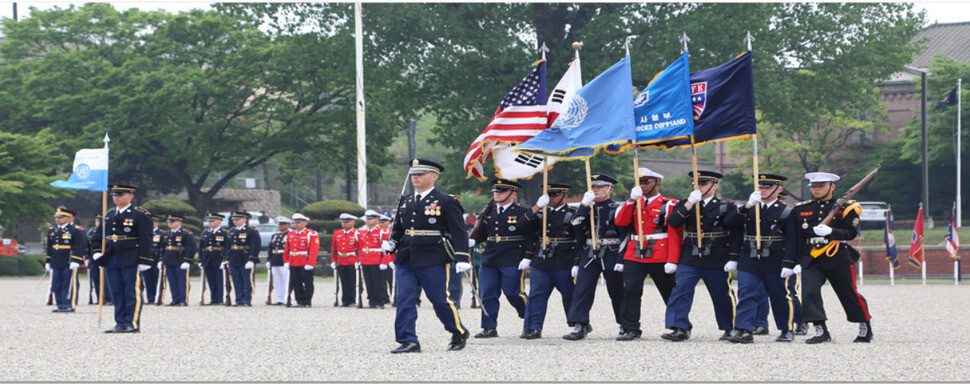
The second semi-annual Combined Command Post Training, a joint South Korea-U.S. military exercise, starts on Aug. 18. Because part of the Future Allied Forces Command Full Operational Capability verification assessment, which is necessary for the transition of wartime operation control, was postponed until next year along with a reduction in military training due to COVID-19, the exercise seems insubstantial. However, it does appear that a wartime operation control transition will not be impossible during President Moon Jae-In’s term. It is right for the government to convince the United States to proceed with the plan of transitioning wartime operation control by adjusting conditions and schedules.
The government is planning to finish the second phase – the Full Operational Control verification assessment – by the end of 2021 and the third phase – the Full Military Capability verification assessment – next year. This is based on the condition-based operation control transition plan agreed to by South Korean and U.S. defense leaders in October 2014, during the Park Geun-hye administration. It is important that the government remember that there are many experts who are critical of the United States arbitrarily conducting verification assessments in an effort to postpone the transition.
The transition deadline was originally scheduled for April 17, 2012, pursuant to an agreement between Korea and the United States during the Roh Moo-hyun administration. Even though U.S. Armed Forces in Korea Cmdr. Burwell Bell said that the wartime operation control transition could be done by 2009 after considering the operational capability of South Korea, the Roh Moo-hyun administration’s Ministry of National Defense postponed that action until 2012. There are former high-ranking security officials who claim that, considering Korea’s current economic and military power, wartime operation control should be transitioned immediately.
Considering the situation, it is possible that the government could consider adjusting the schedule for the verification assessments. First, it could carry out both the second phase FOC and third phase FMC verification assessments at the same time next year. If this is not possible, it could complete the second phase FOC verification assessment and then do the third phase FMC verification assessment in May 2022, after the new administration launches. The United States must be persuaded to change the schedule. Because the wartime operational control transition depends on the will of the government and not on outside circumstances, the government should start consulting with the United States if it has the will.

Leave a Reply
You must be logged in to post a comment.